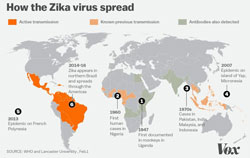Monmouth University was featured in the 2023 Princeton Review Guide to Green Colleges, published on Oct. 25, 2022. The resource, intended to aid college applicants seeking schools with strong commitments to the environment, profiles 455 institutions and ranks the top 50 based on over 25 data points gathered from surveys of students and administrators at 713 colleges.
The surveys explored institutions’ sustainability-related policies, practices, and programs. Results were tallied into Green Rating scores on a scale of 60 to 99 with colleges earning a score of 80 or higher selected for the Guide to Green Colleges. The list includes profiles on the colleges’ uses of renewable energy, their recycling and conservation programs, academic offerings in environmental studies, and career guidance for green jobs post-graduation.
“Since we debuted this project 13 years ago, we have seen an increasing interest among college applicants in attending colleges that are committed to the environment and to green practices” noted Rob Franek, Editor-in-Chief of The Princeton Review, in a press release about the latest Guide to Green Colleges.
In a 2022 Princeton Review survey about top hopes and concerns among over 10,000 college applicants, 77 percent, of participants indicated that a college’s commitment to the environment would affect their decision to apply to or attend that school. In response, a growing number of institutions have dedicated more time and attention to developing sustainability-related policies and programs.
“This is an excellent and well deserved acknowledgement of the University’s commitment to maximize the use of sustainable, renewable energy resources as well as other efforts to reduce our carbon footprint,” said John Tiedemann, Assistant Dean of the School of Science and Director of the Marine and Environmental Biology and Policy Program (MEBP). “It is also a rewarding acknowledgement of the success of our curricular initiatives in the areas of marine and environmental biology and policy and the success of the University’s Urban Coast Institute (UCI) in the state, regionally and nationally.”
Academically, sustainability and the environment rank highly among Monmouth’s educational focuses. The MEBP program in particular allows students to gain hands-on experience through lab and field work through courses and faculty-directed research opportunities.
“Field experiences include investigations of the ecology of the Pine Barrens, oceanographic sampling cruises on the R/V Heidi Lynn Scholthorpe research vessel and our annual Tropical Island Ecology course which includes two weeks at the Cape Eleuthera Institute in the Bahamas. Students can also participate in a research project with a faculty mentor during the semester or as part of the School of Science Summer Research Program,” explained Tiedemann, who also noted that Monmouth University’s unique proximity to estuarine environments and coastal locations allows students to do much of their learning in living outdoor classrooms.
Such field work and research opportunities are made possible by support from the UCI. “One of our primary roles is to provide opportunities for students to engage in research and gain experience working on projects and with local communities,” said Tony MacDonald, Director of the Urban Coast Institute, who noted that the UCI has helped provide funding for the University’s research vessel, the School of Science Research Program, student summer research grants, and faculty enrichment grants.
“While the UCI does not directly offer academic programs, as a coastal and ocean research and policy ‘think tank,’ we are committed to working with students, faculty and communities to identify ways in which we can live sustainably at the New Jersey Shore,” continued MacDonald.
“I believe that as students embark on careers and life beyond college it is important that they are environmentally literate and aware of environmental issues as citizens in any future walk of life,” added Tiedemann.
Catherine Duckett, Ph.D., Associate Dean of the School of Science, noted that although Monmouth already has a strong environmental presence in the classroom, there is still more that can be done to improve and expand upon the University’s academic offerings. In order to accomplish this, she suggests adding an environmental studies major.
“The solutions are not all scientific. Most of them involve socio-political decision making,” explained Duckett. “For people to understand in a more social way what they can do and what corporations and governments need to do to solve the climate crisis, we need people who aren’t scientists to solve these issues.”
The Guide to Green Colleges also looks at how sustainable practices are implemented on campus, another area that Monmouth excels in.
“Monmouth produces a tremendous amount of green energy. It’s actually the principal thing we do that’s effective sustainably,” said Duckett.
According to the University’s website, Monmouth is a regional and national leader in solar energy usage. In 2005, a 454 kilowatt solar photovoltaic system was installed on Bey Hall, Boylan Gymnasium, the Rebecca Stafford Student Center, and the Facilities Management Building, producing approximately 500 megawatt-hours of electricity each year and significantly reducing carbon dioxide emissions. An additional 46,000 square feet of solar paneling has been added to several buildings across campus since then.
Many of the University’s sustainability initiatives are guided by the Sustainability Advisory Council (SAC), an interdisciplinary work group composed of faculty, administrators, staff, and students. Coordinated by the Urban Coast Institute, the SAC promotes environmental awareness and is tasked with reviewing current practices, policies, and procedures, and recommending changes and actions to promote sustainability on campus.
In addition to its appearance in the Guide to Green Colleges, Monmouth is also featured in The Princeton Review’s The Best 388 Colleges: 2023 Edition and the Northeastern section of 2023 Best Colleges: Region by Region.



